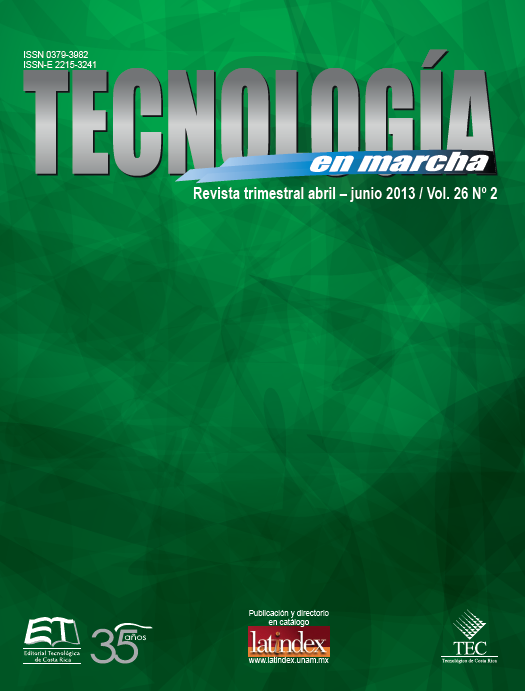Alternatives and actions regarding solid residues, presented by Jimenez and Oreamuno municipalities and their relation to development and sustainability (Informative)
Main Article Content
Abstract
Currently, the production processes are not efficient, which contributes to the generation of waste. In Costa Rica the municipalities are responsible for the integrated management of solid waste. That is why this research focuses on issues of waste management which has become a major environmental problem. So, it is necessary to confront these issues from the perspective of sustainable development, requiring a new vision and awareness of people regarding the environment and the problem of solid waste.
An example of dealing with environmental problems is the work that is being developed in the towns of Jiménez and Oreamuno. These municipalities have worked on environmental education, development and sustainability, and the results have been favorable for treatment and proper disposal of solid waste. In Oreamuno, there is a management plan for organic and inorganic solid waste. There is a storage center and the town is expected to implement in the future bioreactors that enable the production of biofertilizers, methane gas collection, removal of metals in the leachate, and the recovery, processing and marketing of recyclable and reusable waste. Meanwhile, the town of Jiménez has a waste management system, recyclable inorganic wastes are utilized in the collection center and organic waste is transformed into organic fertilizer, which is used on farms in the locality. Therefore, the aim of this paper is to analyze these approaches and their relationship to development and sustainability.
Article Details
Los autores conservan los derechos de autor y ceden a la revista el derecho de la primera publicación y pueda editarlo, reproducirlo, distribuirlo, exhibirlo y comunicarlo en el país y en el extranjero mediante medios impresos y electrónicos. Asimismo, asumen el compromiso sobre cualquier litigio o reclamación relacionada con derechos de propiedad intelectual, exonerando de responsabilidad a la Editorial Tecnológica de Costa Rica. Además, se establece que los autores pueden realizar otros acuerdos contractuales independientes y adicionales para la distribución no exclusiva de la versión del artículo publicado en esta revista (p. ej., incluirlo en un repositorio institucional o publicarlo en un libro) siempre que indiquen claramente que el trabajo se publicó por primera vez en esta revista.

